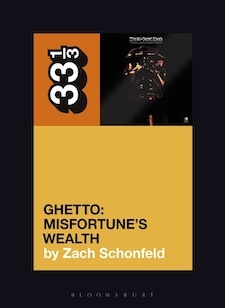What are you reading in January?

In our monthly book club, we discuss whatever we happen to be reading and ask everyone in the comments to do the same. What Are You Reading This Month?
Mediocre: The Dangerous Legacy Of White Male America by Ijeoma Oluo
To be clear, there never was and never will be a time when Ijeoma Oluo’s new book Mediocre: The Dangerous Legacy Of White Male America (Seal Press) isn’t relevant. But reading history-rich analysis of white male supremacy and its toxic repercussions from the author of So You Want To Talk About Race on the same week that the living personification of white grievance stormed the U.S. Capitol was like finding the key in the back of a fantasy novel: Suddenly, the labyrinthine gibberish started to make sense. Throughout the book, Oluo lifts the hood on institutional racism and sexism, breaking down everything from how white backlash to Reconstruction influenced widespread housing discrimination—and, in turn, racial wealth gaps—to online “brocialists” and their allergy to female power. (Hint: White male identity politics are still identity politics.) One by one, Oluo holds up parts of these complex and insidious engines, demonstrating for readers how each piece, as she puts it, “works by design.” One-star reviews of Mediocre on Amazon are mostly knee-jerk complaints about its title, which is ironic, but not unexpected: If these aggrieved reactionaries bothered to read the book, they’d have a better understanding of why they find the concept of deconstructing whiteness so triggering, and why rejecting Oluo’s ideas, and those of writers like her, is a mistake. As Oluo explains it, training white men to believe that “everything should be built for you and that anything built with the consideration of others is inherently harmful to you” ends up harming everyone—except for the small handful of mediocre white men writing the rules. [Katie Rife]
IRL: Finding Realness, Meaning, And Belonging In Our Digital Lives by Chris Stedman
As the country nears a full year of COVID-induced lockdown, many people’s lives—the personal, the professional, etc.—have predominantly been lived in an online space. In many respects, the virtual world has become individuals’ day-to-day reality, making Chris Stedman’s IRL: Finding Realness, Meaning, And Belonging In Our Digital Lives (Broadleaf Books) all the more essential. Even without the pandemic, IRL would be a vital read, a thoughtful examination of our perpetually “logged on” existence, and a measured critique of the social systems that define our time online. As the book underscores, the internet may break down barriers and allow us to stay more connected than ever, but platforms like Twitter and Instagram are still products of capitalism with their own set of rules to maintain status quo that privilege the powerful. To its benefit, IRL isn’t an indictment of social media, nor is it an outright embrace—instead, it encourages us to use the tools of the digital world more mindfully, harnessing their power so we can experience more enriched lives, both online and off. Crucially, Stedman isn’t writing a how-to guide; he doesn’t pretend to have all of the answers. In his previous book, Faitheist, Stedman argued for a space for atheists in the interfaith dialogue, and he takes a similarly holistic, humanist approach to the internet, his background in religious studies illuminating parallels between organized religion and our perpetual search for community and belonging on the web. Warm, vulnerable, and curious, Stedman’s personal stories of success and heartache provide IRL with a compelling through line, weaving in metaphoric observations about drag queens, map makers, and tattoos that illustrate the ways we’re constantly finding and redefining ourselves online. Eye-opening and affirming, IRL should be required reading before the next time you hit send on a tweet. [Cameron Scheetz]
24-Carat Black’s Ghetto: Misfortune’s Wealth (33 1⁄3) by Zach Schonfeld
24-Carat Black only released one proper album, 1973’s Ghetto: Misfortune’s Wealth, an ambitious, offbeat, and despairing soul-funk concept album that bluntly tackled themes of poverty and urban struggle. The album faded into obscurity alongside the outfit, but has since been resurrected thanks to its impact on rappers like Kendrick Lamar, Pusha-T, Jay-Z, and Nas, all of whom have sampled its tracks in their own work. In his new contribution to the 33 1⁄3 book series, veteran music journalist and past A.V. Club contributor Zach Schonfeld uses the LP to unpack the ’70s soul scene, the decline of the influential Stax Records, and the bullshit industry practices that have made it so difficult for 24-Carat Black’s surviving members to get paid. He also traces Ghetto’s creation, release, and cultural resurgence with the help of the key players, each of whom brim with rich anecdotes, industry insight, and musings about the late Dale Warren, the brilliant, hard-drinking Motown arranger so integral to the album’s trailblazing sound. [Randall Colburn]